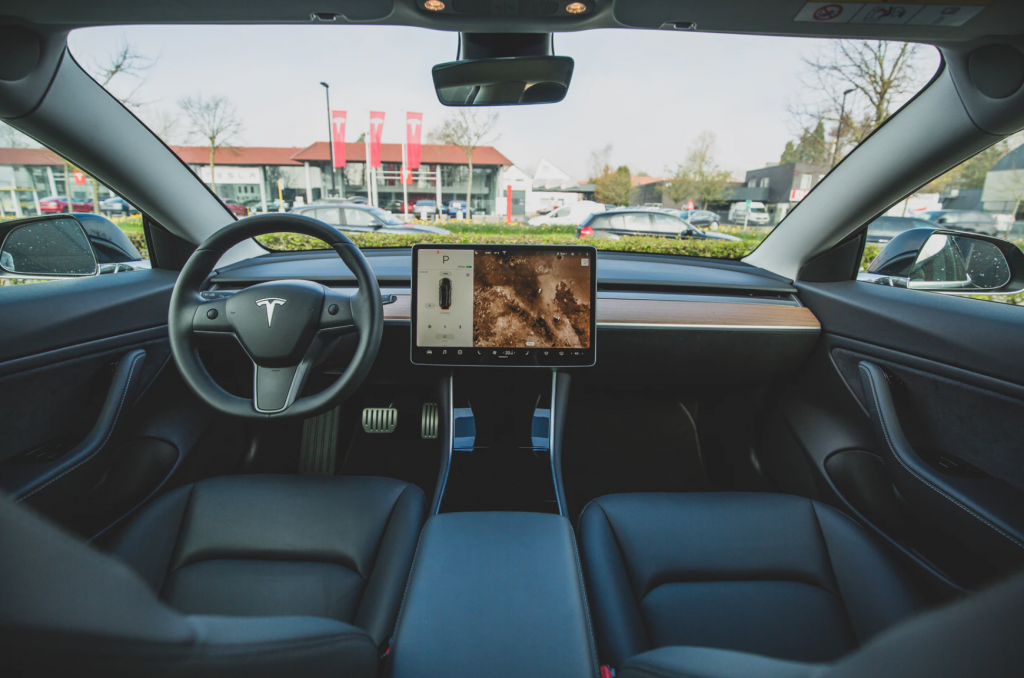Do you ever wonder “how will my kid be as an adult?” Well, one of the few certainties you can trust is that Teslasand self-driving vehicles will be a part of your kid’s adolescence. Odds are, your kids will soon be behind the wheel of a robot car from The Future themselves. Teslas are merely the first batch of a new way of thinking about transportation.

So are self-driving cars safe? The answer is mostly yes, but with some room for debate.
This is what this article will cover:
- What are self-driving vehicles?
- Are they safe?
What Are Autonomous Vehicles?
This idea of a car not needing a human driver is not a new one. Cruise control was invented in 1948. The evolution of cars has just kept on whirring since then (the seat belt was invented in 1959). According to an IIHS survey from 2012, about 8,000 driver lives would have been lost that year if cars had remained the same since 1985.
Self-driving vehicles, also known as autonomous vehicles, or AVs for short, are cars and trucks that offer actual driving assistance. Actual driving assistance means that auto-braking does not qualify. There are six Levels of Automation, ranging from 0, manual control; to 5, full automation. Driver assistance is Level 1. This is already familiar in many homes. Examples include cruise control or when the car monitors and maintains a safe distance from the next car.
Tesla self-driving function is currently Level 2 autonomous, but Elon Musk said in an interview that by mid 2020, Teslas should be able to sustain full level 5 automation. Tesla and Uber also plan on rolling out AV taxis. Uber actually has a functioning autonomous flying car. Expect reunions with your grandkids to look like a scene from The Jetsons.
Obviously, the law has had to keep pace with these tech developments. Safety standards for cars have come a long way since the days of TheDukes of Hazard.
Are They Safe?
According to Business Insider, 81 out of the 88 accidents involving AVs in California since 2014 were the fault of humans and not the fault of the car itself. Only one accident was deemed a technical error.
Nevertheless, the question is a tricky one. The problem with answering this question is that relative car safety is gauged by fatality per 100 million miles and each the individual companies with data for self-driving vehicles each account for about 10 million miles.
The question gets a little more complicated when you consider the question of insurance. Determining if an Uber driver was involved in your accident is not as easy as you might imagine,” said a Tampa accident injury lawyer from the SteinLaw Group.
Generally though, it has been shown that self-driving systems tend to be safer than human drivers.
Currently the human average is 1.16 fatalities per 100 million miles, by the way.
Pros
- They Can Prevent Tragedies
Machines are better drivers than humans because they do not drink, text, or hesitate. Some blogs even predict that in the future, people will not have any need for driver licenses.
A machine is generally better than a human at doing a particular task, but it can only perform well within that narrowly defined scope.
- They Let You Multitask
People nowadays are under a lot of heat. Many people have opted to live a life of freelancing and job-hopping. This means they have to learn to be like jugglers with their time. Keep up or shut up. Our world has plenty of examples to chose from if you want to live the fast life. AVs spell the end of distracted driving and the beginning of the mobile office for those who choose this high-powered lifestyle.
- You Can Finally Eat on the Road
Okay technically this falls under multitasking, but food deserves its own category.
Cons
- They Offer Less Control
Technology moves so fast nowadays that it feels like we are getting left behind by the robots. Assuming responsibility for our actions is an important lesson that many teens learn on the road.
Control is a big idea that the human mind spends a lot of resources contemplating. Most of what we do every day is done to try and create a sense of control over our lives. What do self-driving cars mean for your teenager’s psychology? Will never learning to drive affect them in some way later on in life?
Time will tell.
- They Could Decrease Jobs
This is an argument for the Thanksgiving dining room. Although on its face, the amount of change we are experiencing is definitely scary, it is not all losses and negatives. The market is like the hydra from Hercules. You cut off one bit and two new bits sprout up. There is a lot of room for innovation, change, and progress. Your child could work in the AV industry one day, so it is worth spending a few neurons trying to crack the question “what will the world need next?”
















Add Your Comment